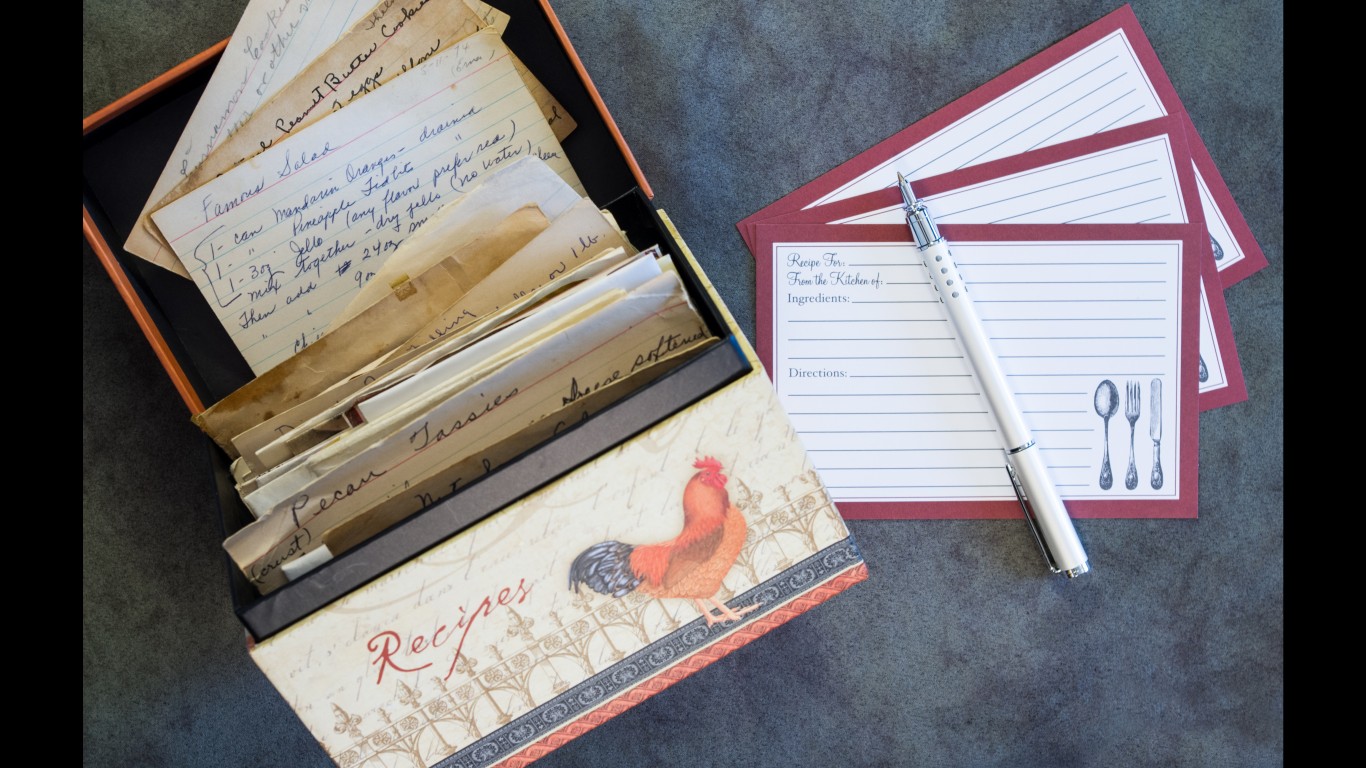
Words sometimes have two meanings, as Led Zeppelin sang in “Stairway to Heaven.” And indeed they often do. Especially, words can acquire new meanings and lose old ones. For example, “audition” once meant the power of hearing. Now it means trying out for a role, such as singer in band, actor in a movie, dancer, and so on. And a “natural” was once a person born with impaired intelligence. Now it more commonly means born with a special talent — the exact opposite — as in “The lead singer’s a natural.”
The English language is constantly evolving, and words sometimes acquire new meanings because of technological change. A carbon copy was originally a duplicate made using carbon paper. We don’t do that anymore, but we regularly CC people on emails. Truck once meant an exchange. Now, it’s a vehicle that carries heavy loads (although it has retained the earlier meaning in the expression “to have no truck with”).
Words also evolve differently in different places. Sometimes they diverge so much that a new meaning in one place may be unknown or incomprehensible in another. Here is a list of Canadian slang words and phrases Americans just don’t get.
24/7 Tempo used the Oxford University and Dictionary.com collaboration Lexico.com’s list of Archaic Words That Used To Be Common In English to compile a list of old words that have acquired new meanings.
Click here to see 36 old words we use today but with new meaning

Abroad
Abroad once meant out of doors. Now it’s used as an adverb meaning beyond the boundaries of one’s country, or as a noun meaning foreign territory generally.
[in-text-ad]

Audition
Audition meant the power or sense of hearing in the 16th and 17th centuries. The first recorded use of audition as a noun meaning a trial for a performer was in 1881. It began to be used as a verb in the first half of the 20th century.

Bane
Bane was once a synonym for poison — and it has retained that meaning in connection with poisonous plants such as wolfsbane. However, its primary meaning now is a person or thing that ruins or spoils, as in “the bane of my existence.”
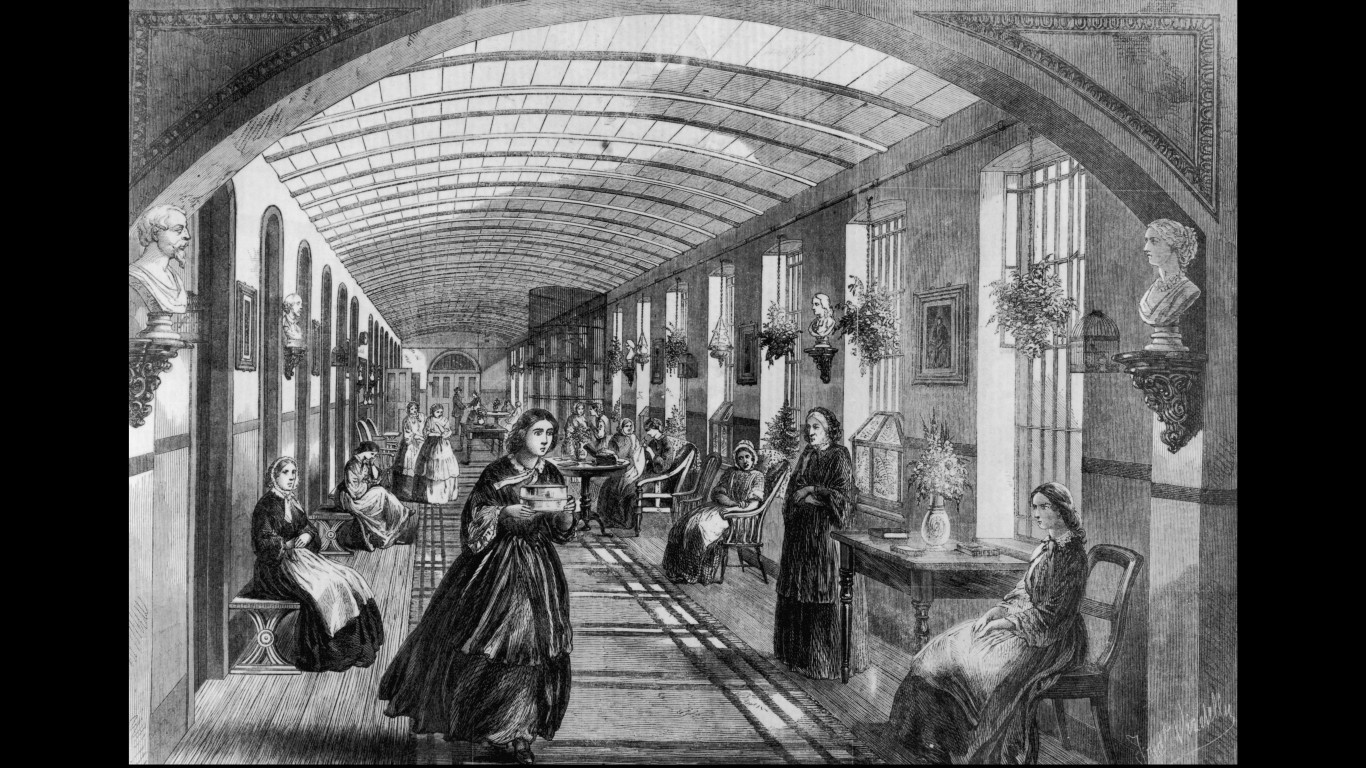
Bedlam
Asylums were known as bedlams from the 16th century. The word derives from Bethlehem, after which a hospital in London was named. Now it means uproar or confusion.
[in-text-ad-2]

Blow
Blow once meant to produce flowers or to be in flower — Shakespere wrote, “I know a bank where the wild thyme blows.” The word had roots in Middle and Old English and was akin to bloom. Now it has many other meanings, including a sudden strike or shock, and to send forth a current of air. It’s also slang for cocaine.

Bootless
Bootless once meant useless but now it most obviously means without boots. However, its roots are still visible in the expression “to boot,” meaning something extra.
[in-text-ad]

Breech
Breech once meant buttocks and has retained a related meaning in the plural — breeches, or pants — and in the expressions “breech presentation” or “breech birth,” as in buttocks first. The rear end of a firearm is also known as the breech.

Caboose
A caboose originally was a kitchen on a ship’s deck, but it came to mean a railroad car that provides shelter for the crew. The earliest known printed use of caboose in the latter sense was in 1859 in a lawsuit filed against the New York and Harlem Railway.

Cadet
In the 17th century, a cadet was a younger son. The older son inherited the estate, and the younger one went into the army, and so today a cadet is a student at a military school. Caddie, as in the person who carries your golf clubs, has related roots.
[in-text-ad-2]

Carbon copy
Carbon copy originally meant a duplicate of typed or written material made by carbon paper — but nobody does that anymore. Typewriters gave way to word processors, which gave way to personal computers and printers. Still, carbon copy is sometimes used to mean an exact replica, and the abbreviation CC is used in email.
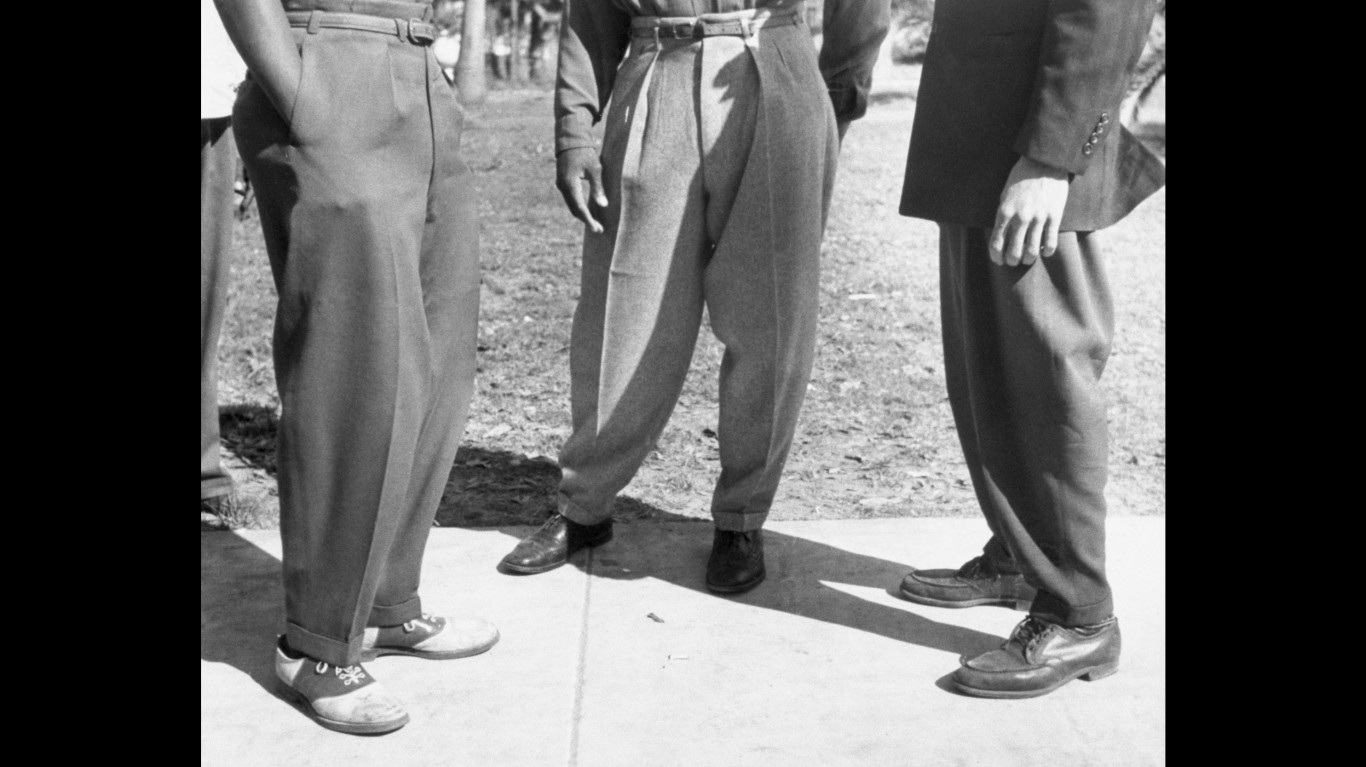
Cat
Cat was once commonly used as a slang term for a male. It was associated with jazz music and was also used by Jack Kerouac. While cat is no longer used on its own, terms like “fat cat” and even “cool cat” are still common enough.
[in-text-ad]

Clout
Clout once meant cloth or clothing and had Old English roots. It also came to be used as a verb meaning to hit in the 14th century, and ultimately came to mean influence — particularly of the political kind — in the 20th century.

Commend
Commend derives from the Latin word commendare, meaning to entrust someone with something. Now it means to praise or compliment.

Corrupt
Corrupt derives from the Latin word corumpere, meaning to destroy or spoil. It was thus used as an adjective meaning rotten or putrid. Now the word is used to point to somewhat more abstract objects. Files are corrupted. It is used to mean depraved or debased, often in the context of the abuse of public power or office — political corruption.
[in-text-ad-2]

Degree
Degree derives from the Latin word for step (degradus), and was largely used in reference to a position in a social hierarchy or to describe stages in a society’s progress. Now the word means a subdivision or measurement, as in “360 degrees in a circle” or “100 degrees in the shade.” It has lost its meaning related to social or official rank, perhaps as our society has become less formal and class-conscious.

Demoralize
Demoralize meant to corrupt the morals of in the 18th century, but it took on the meaning we are familiar with today — undermine the morale of — in the 19th century.
[in-text-ad]
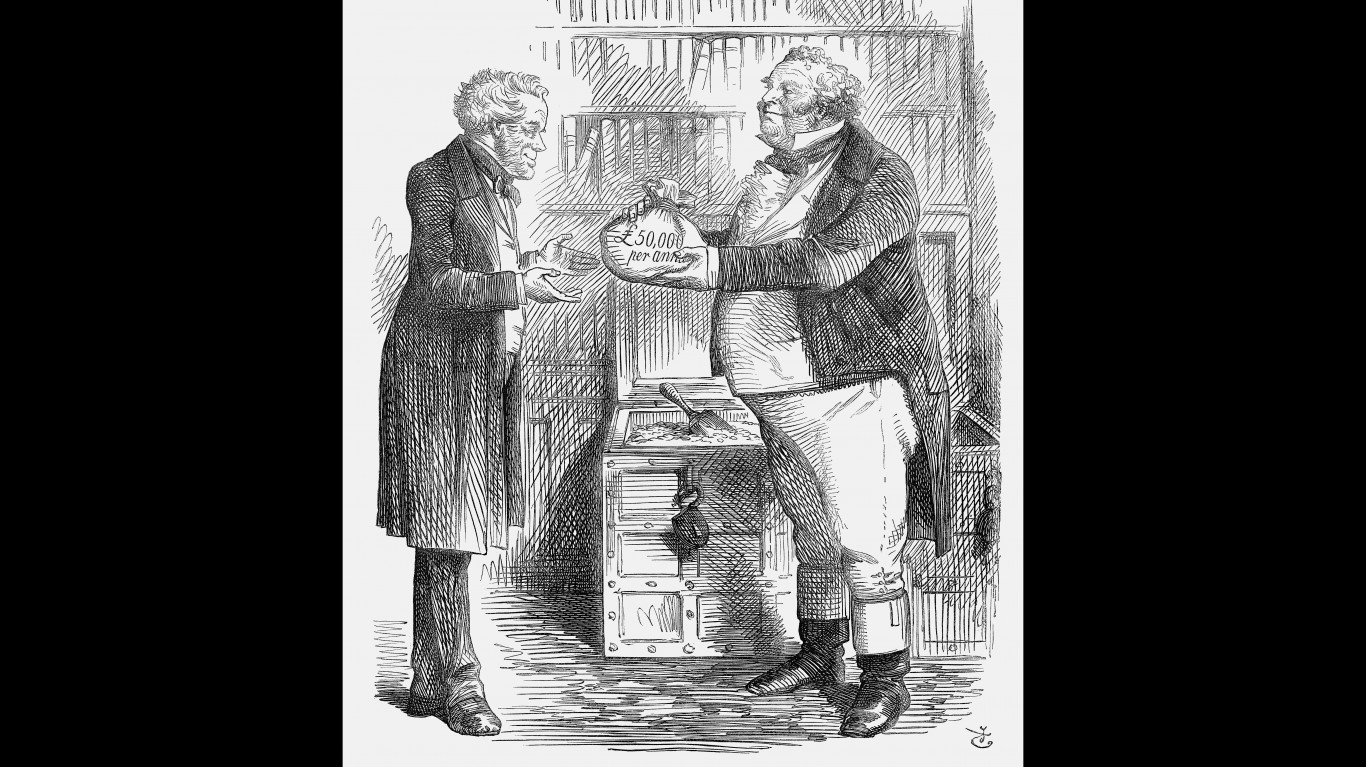
Dot
A dot was once a dowry from which only the interest or annual income was available to the husband. Now you rarely even hear about dowries, much less dots with that meaning. A dot today means a small round mark, and up-to-date usages such as dot matrix printing.

Duds
This is one of the oldest words on our list. In the 1300s, a dudde was a cloak made of coarse cloth and came to be used to describe shabby clothing in general. Eventually, duds came to refer to any kind of clothes.

Freak
A freak was once a whim. It may have derived from the Middle English word freking, which meant capricious conduct. Now it means an unexpected event or a person who does not fit in with the mainstream, and it has been used as slang for a hippie or drug addict. Frank Zappa’s debut album was “Freak Out!” and he became associated with the “freak scene.”
[in-text-ad-2]

Host
A host was once an army, and in the Bible it is used in this sense. This word, which derives from the Latin word hostis by way of Middle English, now simply means a great number. When used in the sense of receiving guests or entertaining, it has different roots — from the Latin hospit, which is also the origin of hospitality.

Intelligence
Intelligence can be defined as the ability to learn or understand, and it also means gathering information about an enemy. While intelligence as a synonym for news is archaic, there are still newspapers called Intelligencer published in various parts of the United States and Canada.
[in-text-ad]

Jade
These days, jade either means a green gemstone or something made from it or it means to wear out or tire — and these meanings have different origins. A jade was once a broken-down horse, and the term came to be applied to a disreputable woman.

Mechanical
Mechanical means of or relating to machinery or automatic. It once meant a worker who did manual labor generally, which in a sense is the opposite of its meaning today. There is also a group of characters in Shakespeare’s “A Midsummer Night’s Dream” called the Mechanicals.

Meet
Meet once meant suitable or proper, and in this sense is related to commensurate. It is still used in Christian prayer: “It is meet and rightâ¦.” Now it means encounter or assemble, as in the dreaded office meeting.
[in-text-ad-2]

Moxie
Moxie was once popular as a synonym for courage or determination. Today it is more widely known as the name of a popular soft drink that rivaled Coca-Cola in the 1920s.

Natural
A natural once meant a person born with impaired intelligence. Now it has many meanings, including the opposite — a person born with a special ability, as in, “She’s a natural musician.” It can also mean ordinary, as in, “He died of natural causes.”
[in-text-ad]

Nice
Nice once meant fastidious or precise, as in “a nice distinction.” Those meanings haven’t entirely died out, but now nice is most often used to mean polite, kind, agreeable, or appropriate.

Profess
To profess once meant to teach, as a professor does. Now it means to declare or admit openly, such as when someone professes their love. The word is often used in the context of religious belief.

Receipt
A receipt was once a recipe, and in this sense it had French roots (as do many cooking terms). Now it can mean the act of receiving or an acknowledgement of something purchased. The word is derived from the Latin word recepta.
[in-text-ad-2]

Relieve
To relieve once meant to make (something) stand out and derived from the Latin relevare, to raise. Now it means to free from a burden, to replace or take the place of. The former sense is still evident when we talk about relief sculpture.

Remit
The verb remit has several meanings, including to send money or to send back to a lower court. Long ago, it also meant to diminish, and it retains a similar meaning when a judge remits — or reduces — a sentence for good behavior.
[in-text-ad]

Repair
A repair was once an abode or haunt. Now it’s commonly used to mean to fix or make good, although you can still repair to your favorite haunt for drinks.

Speed
Speed was an Old English word meaning success or prosperity, but came to mean rapidity of movement and rate of movement, whether fast or slow. More recently, speed has been used as street slang for amphetamines, drugs which stimulate the central nervous system.

Truck
Truck, from the French troquer, entered the English language in the 13th century and meant an exchange or transaction. It has retained this meaning in the expression “to have no truck with.” Now, to most people, a truck is a vehicle that carries heavy loads, and in this sense it may derive from the Greek word trokhos, or wheel.
[in-text-ad-2]

Visionary
Visionary once meant existing only in the imagination. It has since acquired a more optimistic meaning — a person who sees things as they will or should be.
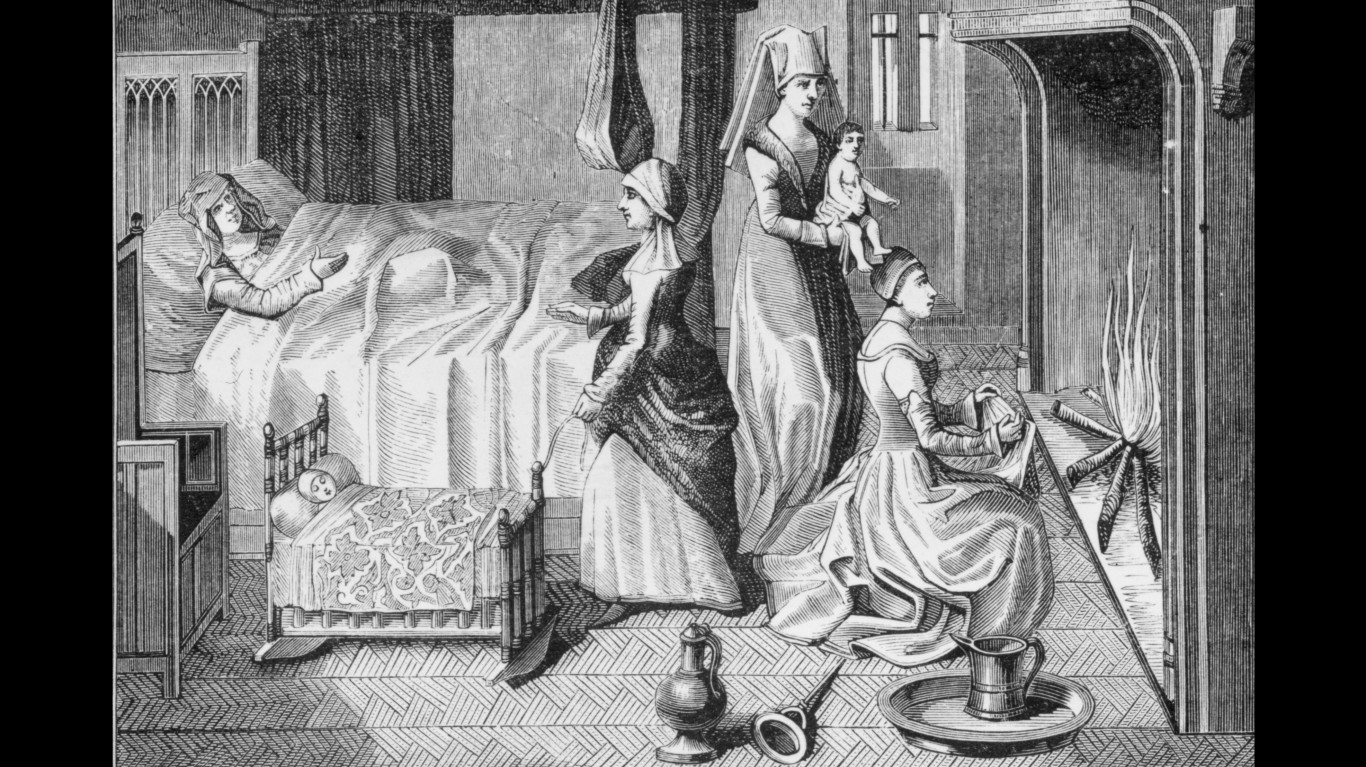
Wife
In Middle English, a wife was any woman, especially an old or uneducated one, but it came to mean a married woman. The earlier meaning has been retained in words like midwife — a woman, not necessarily married, who assists in childbirth.
Get Ready To Retire (Sponsored)
Start by taking a quick retirement quiz from SmartAsset that will match you with up to 3 financial advisors that serve your area and beyond in 5 minutes, or less.
Each advisor has been vetted by SmartAsset and is held to a fiduciary standard to act in your best interests.
Here’s how it works:
1. Answer SmartAsset advisor match quiz
2. Review your pre-screened matches at your leisure. Check out the advisors’ profiles.
3. Speak with advisors at no cost to you. Have an introductory call on the phone or introduction in person and choose whom to work with in the future
Get started right here.
Thank you for reading! Have some feedback for us?
Contact the 24/7 Wall St. editorial team.
 24/7 Wall St.
24/7 Wall St. 24/7 Wall St.
24/7 Wall St. 24/7 Wall St.
24/7 Wall St.